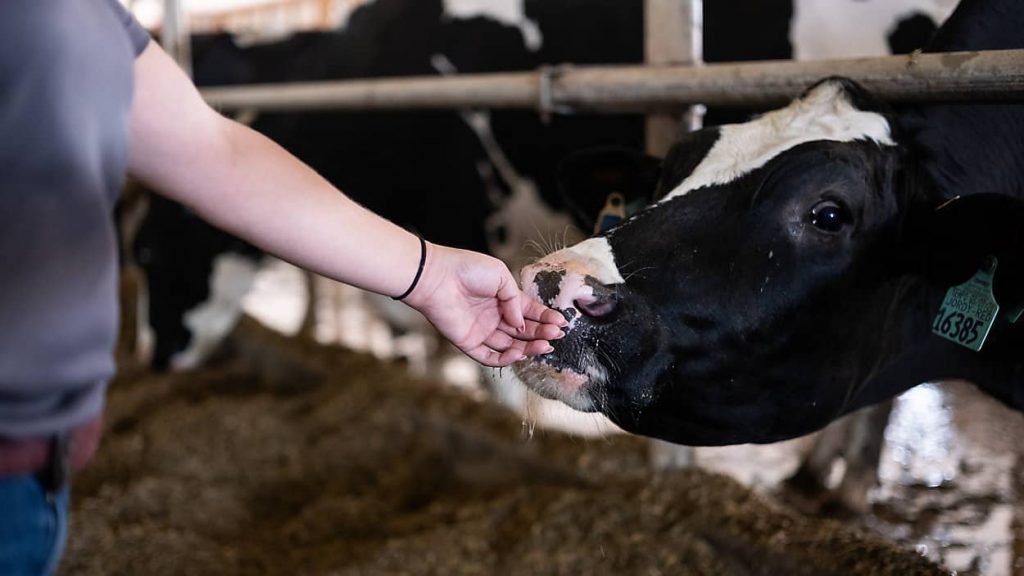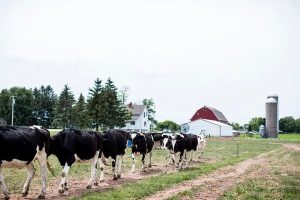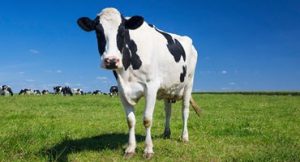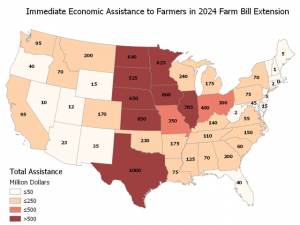
Even after Congress passed a short-term funding bill to keep the government open, agriculture experts are warning that politicians need to work quickly on passing a new Farm Bill before adverse effects hit farmers and consumers.
Some key programs included in the 2018 Farm Bill technically expired on Saturday, but remain funded through the end of the year, said Christopher Wolf, an agricultural economics professor at Cornell University.
“Some of them are permanent and don’t require any extension, like crop insurance. Some of them need reauthorization, and some of them are authorized, but need funding,” Wolf said.
Farmers and consumers have their eyes on the so-called “dairy cliff” — the end of a government-funded program to offset the cost of milk. If there isn’t a new bill or an extension, the program reverts back to a 1949 law that would set prices relative to the 1910s, Wolf said.
According to the Congressional Research Survey, milk would be priced at $50.70 per 100 pounds — 2.5 times higher than the current price of milk at $19.30 per 100 pounds.
Wolf said because of the price tag, he’s confident it won’t come to that.
“If it were to happen, that would cost billions and billions, but that’s not going to happen,” Wolf said. “It’s really not that unusual to go past the fiscal year expiration date.”
The Farm Bill is typically bipartisan legislation, however, in recent years, there has been more debate between Republicans and Democrats about allocation of funding between nutritional and agricultural programs.
“I think it goes back to that urban and rural divide between some of the legislators and some of those nutrition programs are authorized but need funding, so they don’t necessarily need a new Farm Bill, but they do need a spending bill,” Wolf said.
Supplemental Nutrition Assistance Program (SNAP) and Supplemental Nutrition Program for Women, Infants and Children (WIC) both fall under those categories and could be funded outside of the Farm Bill by allocating more money, he said.
The New York Farm Bureau remains committed to making sure a strong Farm Bill is passed but sees no immediate negative ramifications until the end of the year, said Steve Ammerman, a spokesperson for the organization.
“From risk management and disaster assistant to conservation and research funding, farms depend on a Farm Bill to provide food security for our country. The New York Farm Bureau is strongly urging our congressional delegation to focus on passing timely legislation that will not cause any disruption to vital farm and nutrition programs,” Ammerman said.
Approaching the “dairy cliff” could have significant market disruptions and upend milk prices for farmers and consumers, he said.
“It is too soon to predict what will happen, and we are hopeful to avoid a repeat of years past that took us towards the so-called ’dairy cliff’ where critical risk management programs would be left unfunded and agricultural policy would revert to those in the 1940s,” Ammerman said.
Wolf predicts the current Farm Bill will need an extension to continue some of these programs like it has in previous years.
“I think the Senate and the House might be at different places, but they have to get to the same place, and if the Senate is willing to go along with it then the president will probably be willing to sign it,” he said.

























